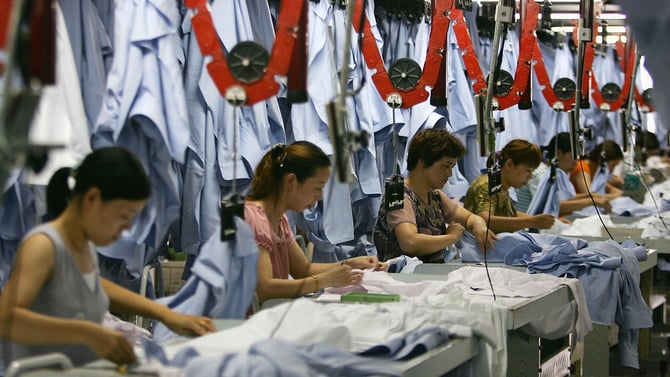China’s Workforce Returns to Office

Mask-wearing commuters in Beijing and Shanghai, China’s two largest cities, are crowding roads and public transport as workers return to factories and offices after tough “Zero-COVID” measures were dropped.
Following years of harsh anti-Coronavirus curbs, President Xi Jinping scrapped the country’s Zero-COVID policy in response to widespread protests and a widening COVID outbreak. The containment measures had slowed the $17 trillion economy to its lowest growth rate in nearly 50 years, disrupting global supply chains and trade in the process.
Now, there are signs that life is returning to normal. Subway trains in Beijing and Shanghai were packed on Monday, while some major traffic arteries in the two cities were filled with slow-moving cars as residents commuted to work.
It follows the first signs of a return to normal over the weekend as the number of trips to recreational spots in the southern city of Guangzhou increased by 132% from last weekend.
What does this mean for me?
China is the last major country to move toward treating COVID as endemic, but must now endure the pain of delaying its policy change for as long as it did. Analysts say China’s economy will suffer further in the short term, as the COVID wave spreads toward manufacturing areas and workforces fall sick, before bouncing back next year.
It is expected that big name companies like Tesla and Apple will return their China operations to full capacity after welcome signs of returning workers mean that production can return to “normal” levels.
More News

Egypt’s Recovery Gains Traction as Household Pressure Lingers
8 hours ago

OECD Warns AI and Tariffs Will Test the Global Economy
5 days ago

Zero Tariffs, Higher Drug Bills as US and UK Reset Pharma Trade
6 days ago

Catastrophe Bonds Go Global as Climate Risk Meets Yield Hunting
1 week ago
.webp)
Canada Shields Steel and Lumber Industries From Tariffs
1 week ago

Trump Drops Selected Tariffs in Response to Inflation Pressures
1 week ago

Tariffs on Mexico Test Nuevo Leon’s Industrial Momentum
2 weeks ago

US Moves to Ease Latin American Tariffs as Food Inflation Mounts
2 weeks ago